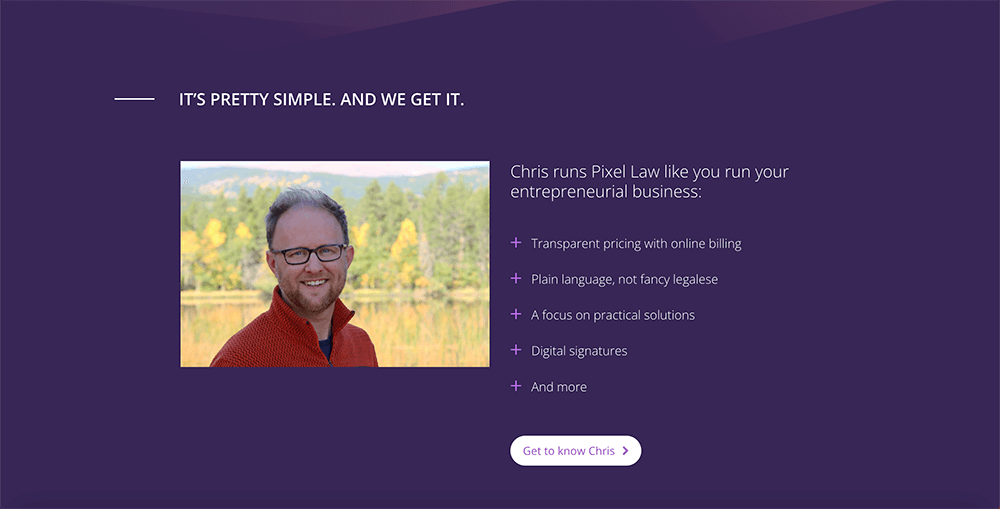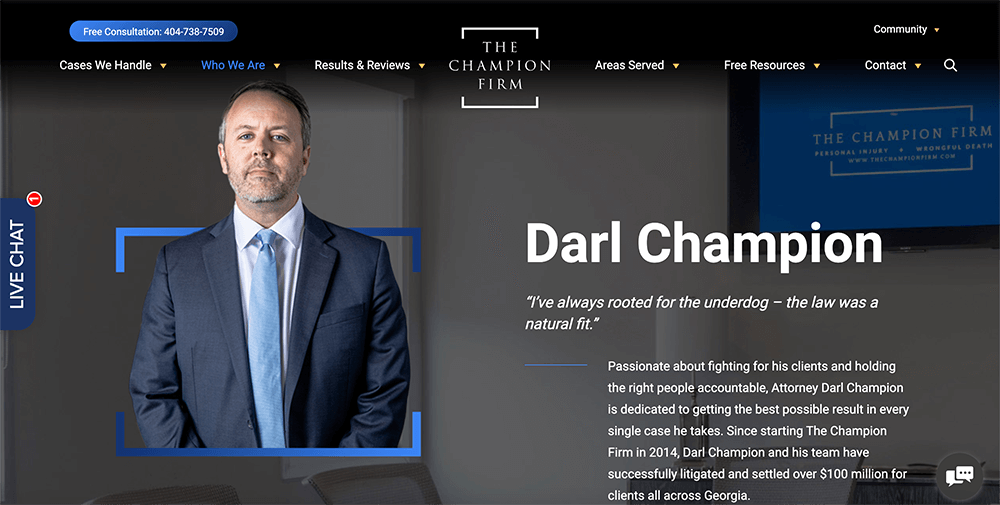Your law firm’s website is more than just a virtual business card. It’s a powerful tool for establishing your brand, connecting with potential clients, and showcasing your expertise. To succeed in the competitive legal industry, your website needs more than just a stylish design; it requires compelling and effective content. In this post, we’ll delve into the art of crafting captivating website content that showcases your expertise and attracts your ideal audience.
1. Know Your Audience
To craft content that resonates, you need to understand your target demographic. What legal needs do they have? What tone and language appeals to them? Research your ideal clients and cater content specifically to their interests and concerns. Show them you understand the challenges they face.
2. Speak Their Legal Lingo
In the legal world, precision matters. When drafting content, use the appropriate legal jargon that demonstrates your firm’s expertise. Balance clarity with professionalism to ensure that your audience understands the message without feeling overwhelmed.
Pixel Law’s content is clearly designed for their target audience; small business owners and entrepreneurs. Their website uses a simplistic design and they pride themselves on using ‘plain language, not fancy legalese’ in their content, which is ‘designed for entrepreneurs, not lawyers’.

3. SEO Optimisation: The Path to Online Visibility
Crafting compelling copy is only half the battle. To ensure your website ranks well in search engine results, incorporate SEO best practices:
- Keyword Research: Identify the keywords and phrases potential clients are likely to use in their searches.
- Meta Descriptions: Craft engaging and informative meta descriptions for each page.
- Structured Content: Use headings, subheadings, and bullet points to make your content scannable.
- Quality Backlinks: Build links from reputable sources to boost your website’s credibility.
4. Show Your Team’s Expertise
Your lawyer’s bios are the digital resumes of your legal team. Make sure they shine:
- Professional Portraits: Include professional headshots to give your team a personal touch.
- Accomplishments: Highlight key achievements, education, and relevant experience.
- Legal Specialties: Clearly outline the areas each lawyer specialises in.
- Personality and Approach: Share insights into your lawyer’s personality and approach to client service.
The Champion Firm’s website has a ‘Who We Are‘ tab which names each lawyer they have working for them. When you follow through to these pages you’re provided with a wealth of information about each lawyer, from videos introducing themselves, to details about their background, their education and some of their cases. Their website content clearly presents the firm’s value and expertise, and potential clients are given a personalised experience before they’ve even contacted the firm.

5. Essential Website Content
While team bios are essential, your website should offer more:
- Homepage: Make a strong first impression that speaks to your audience’s pain points.
- About Us: Share your law firm’s story and values to build relationships and trust.
- Practice Areas: Demonstrate expertise in your legal specialties to boost your credibility.
- Informative Blog Posts: Regularly update a blog with informative content on legal topics that matter to your audience.
- Case Studies: Showcase your success stories to instil confidence in your abilities.
- Client Testimonials: Let satisfied clients share their positive experiences.
- FAQs: Address common client questions and concerns to provide valuable help and support.
6. Crafting Compelling Copy
Follow these tips for writing persuasive website content:
- Headlines: Capture attention with bold headings.
- Scannable Layout: Break up text with subheads for easy skimming.
- Clear Writing: Explain legal expertise in simple, direct language. Avoid jargon.
- Storytelling: Sprinkle in case studies and success stories.
- Visuals: Charts, photos and videos boost engagement.
- Calls-to-Action: Offer free consultations to encourage contact.
7. Consistency and Regular Updates
Maintaining a consistent online presence is vital. Develop a content calendar to schedule and plan your posts in advance. Regular updates demonstrate your commitment to staying relevant and offering fresh, valuable insights.
8. Engagement with Visitors: Building Trust
Your website should be a two-way street. Encourage visitors to reach out with their questions or concerns. Promptly respond to enquiries and comments, fostering trust and demonstrating your dedication to helping your clients.
Final Thoughts
Crafting compelling website copy for your law firm is a blend of legal expertise, SEO optimisation, and a commitment to connecting with your audience. Your online presence is a reflection of your professionalism, knowledge, and client-centred approach. By following these best practices, you’ll create a website that not only attracts potential clients but also instils confidence in your legal services.
Contact us today for a free consultation and check out our case studies to discover how we’ve helped law firms like yours build their content marketing strategy.




